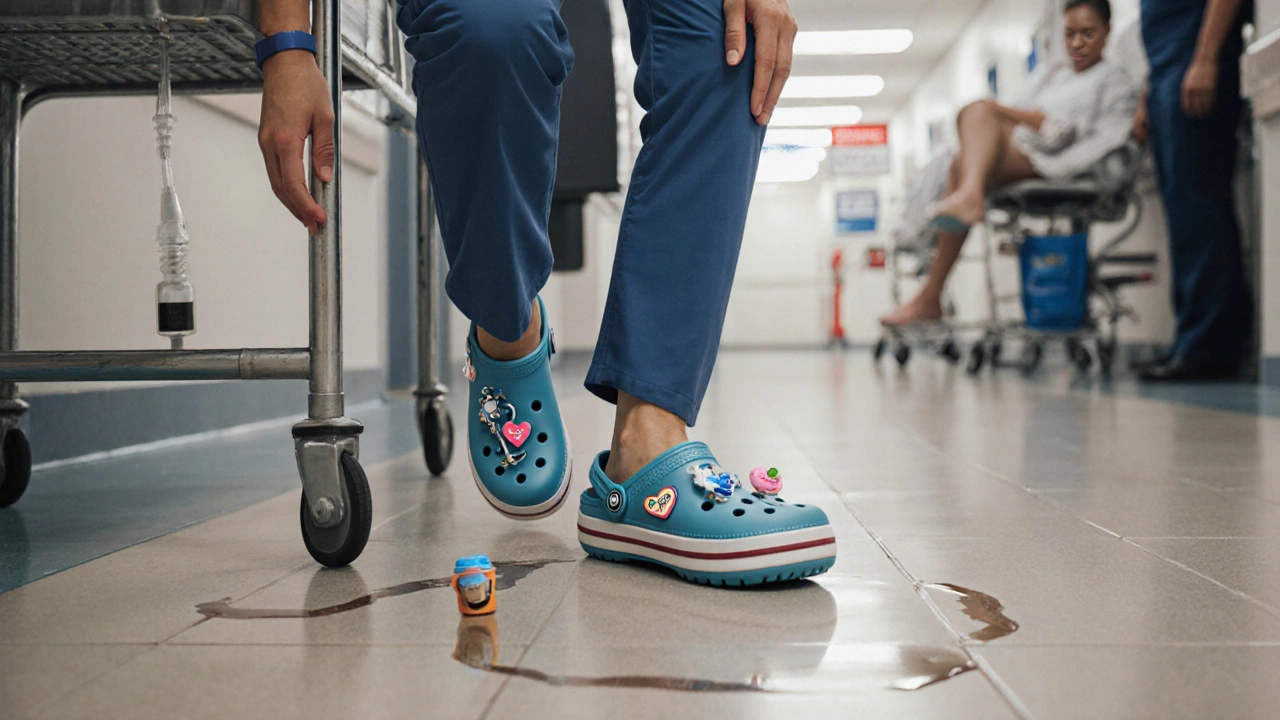Best Work Shoes for Nurses: Comfort, Safety, and Support Explained
When you’re on your feet for 12 hours straight, work shoes, footwear designed for all-day standing and movement in demanding environments. Also known as nursing shoes, it’s not about looking sharp—it’s about surviving your shift without pain. Nurses don’t just walk—they stand, pivot, sprint to code blues, and carry weight across hard floors. The right pair of work shoes isn’t a luxury; it’s a medical necessity.
That’s why safety shoes, footwear built to meet strict UK health and safety standards for impact and slip resistance often overlap with what nurses need. Not every nurse needs a steel toe, but they all need slip-resistant soles, arch support, and cushioning that lasts. Podiatrists regularly warn that poor footwear leads to plantar fasciitis, knee strain, and lower back issues—problems that can end careers. The best work shoes for nurses combine the protection of safety shoes with the comfort of daily wear, without sacrificing durability.
It’s not just about the sole. The upper material matters—breathable mesh keeps feet dry, while reinforced stitching holds up through wash after wash. Cushioning isn’t just foam; it’s memory foam layered over shock-absorbing midsoles. And fit? It’s everything. Many nurses wear two different sizes because their feet swell by the end of a shift. That’s why brands that offer wide widths and adjustable closures are top picks.
You’ll find nurses wearing everything from clogs to athletic-inspired sneakers, but the common thread? No flimsy soles. No tight toes. No zero support. The top choices are the ones that get mentioned again and again by hospital staff—not because they’re trendy, but because they still feel good at 11 PM.
What you’ll find below isn’t a list of the most expensive shoes. It’s a collection of real insights from people who’ve worn them for years. Posts cover what podiatrists actually say about popular brands, how to tell if your shoes are doing more harm than good, and why some shoes that look comfy are actually a trap. You’ll also see why some nurses swear by certain brands while others avoid them like a slip hazard. This isn’t guesswork—it’s lived experience, backed by foot health science and honest reviews.

Why Do Nurses Wear Crocs? The Real Reasons Behind the Trend
Nurses wear Crocs because they’re comfortable, easy to clean, slip-resistant, and affordable. After 12-hour shifts, these foam clogs are the only shoes that let them stand without pain.
